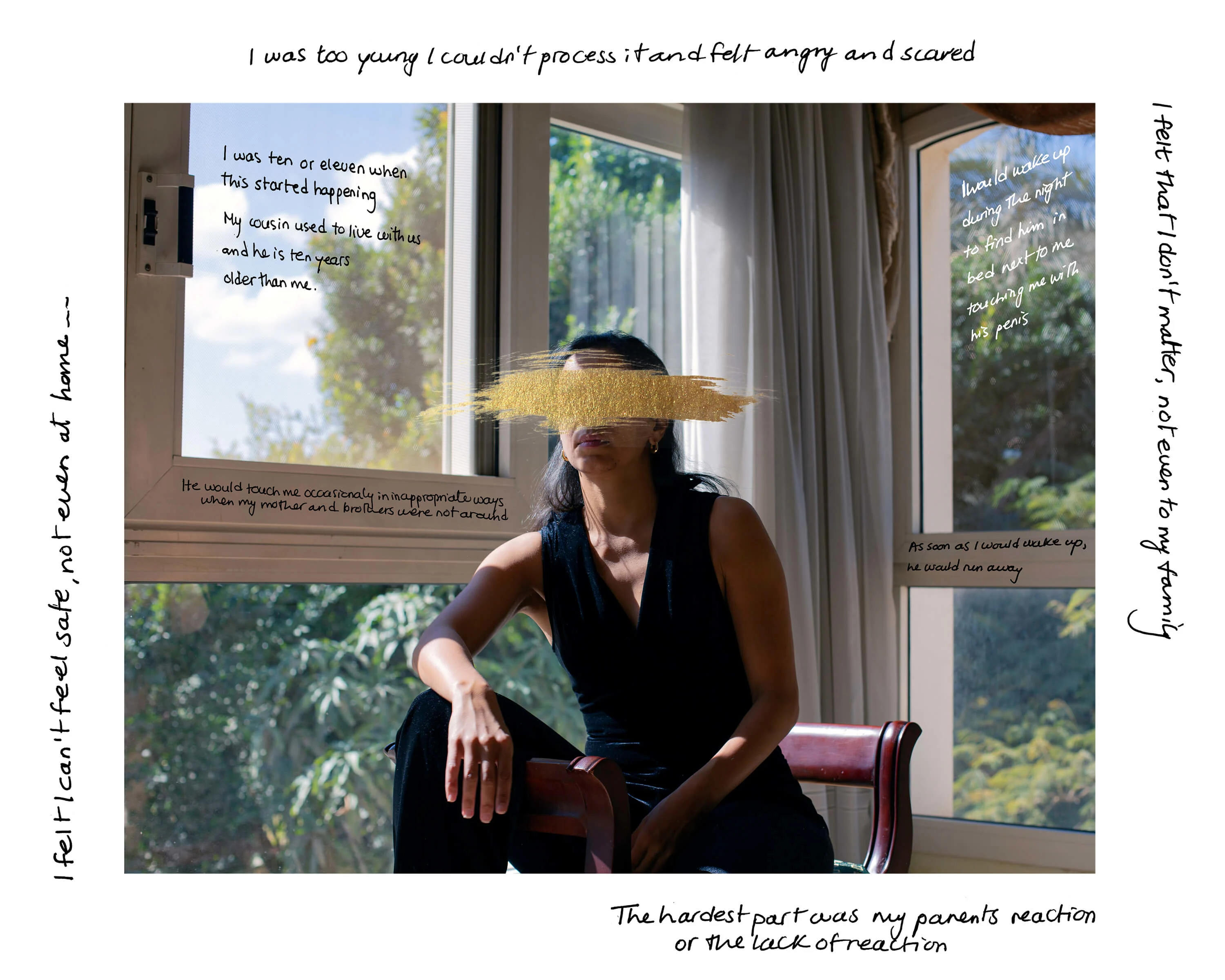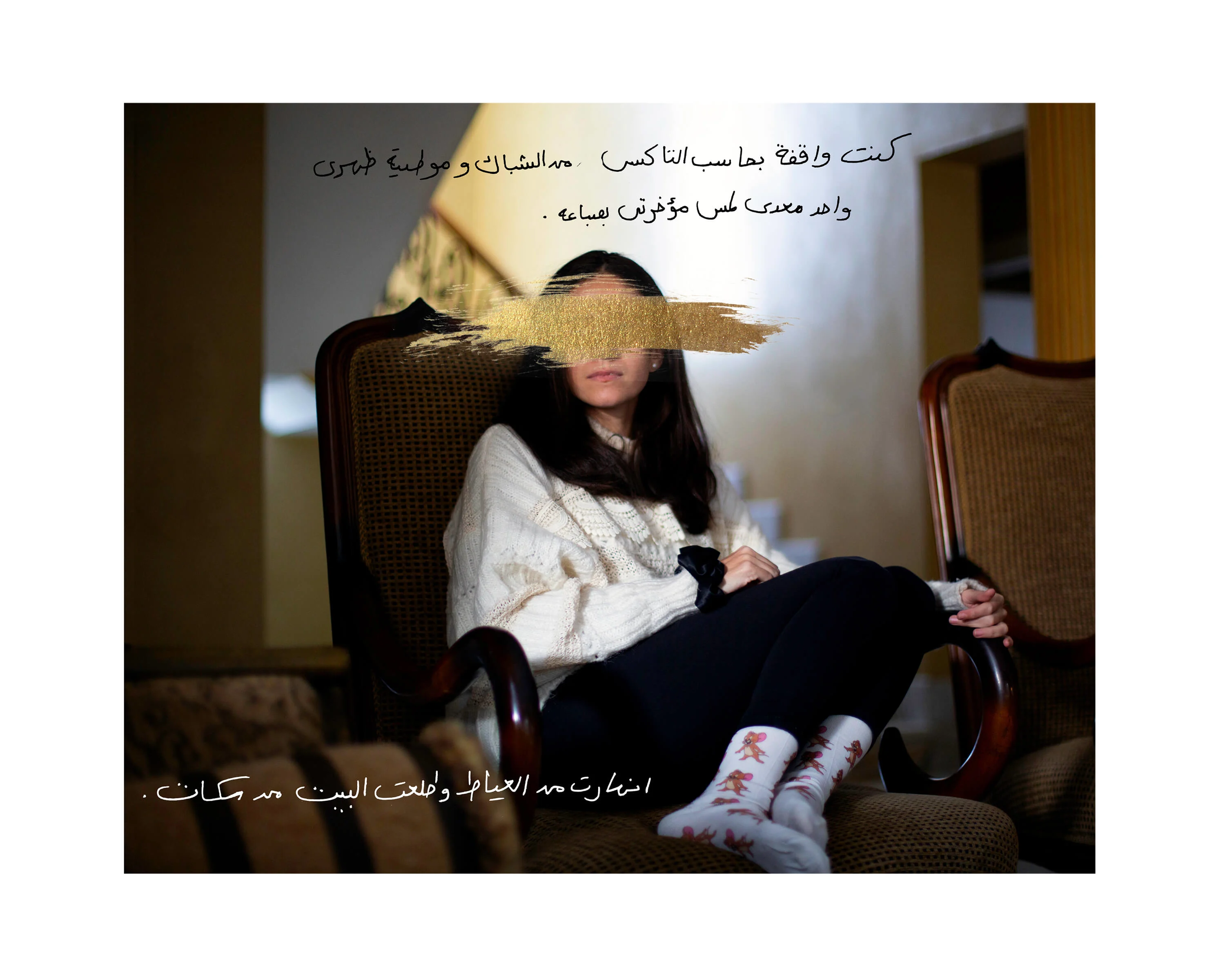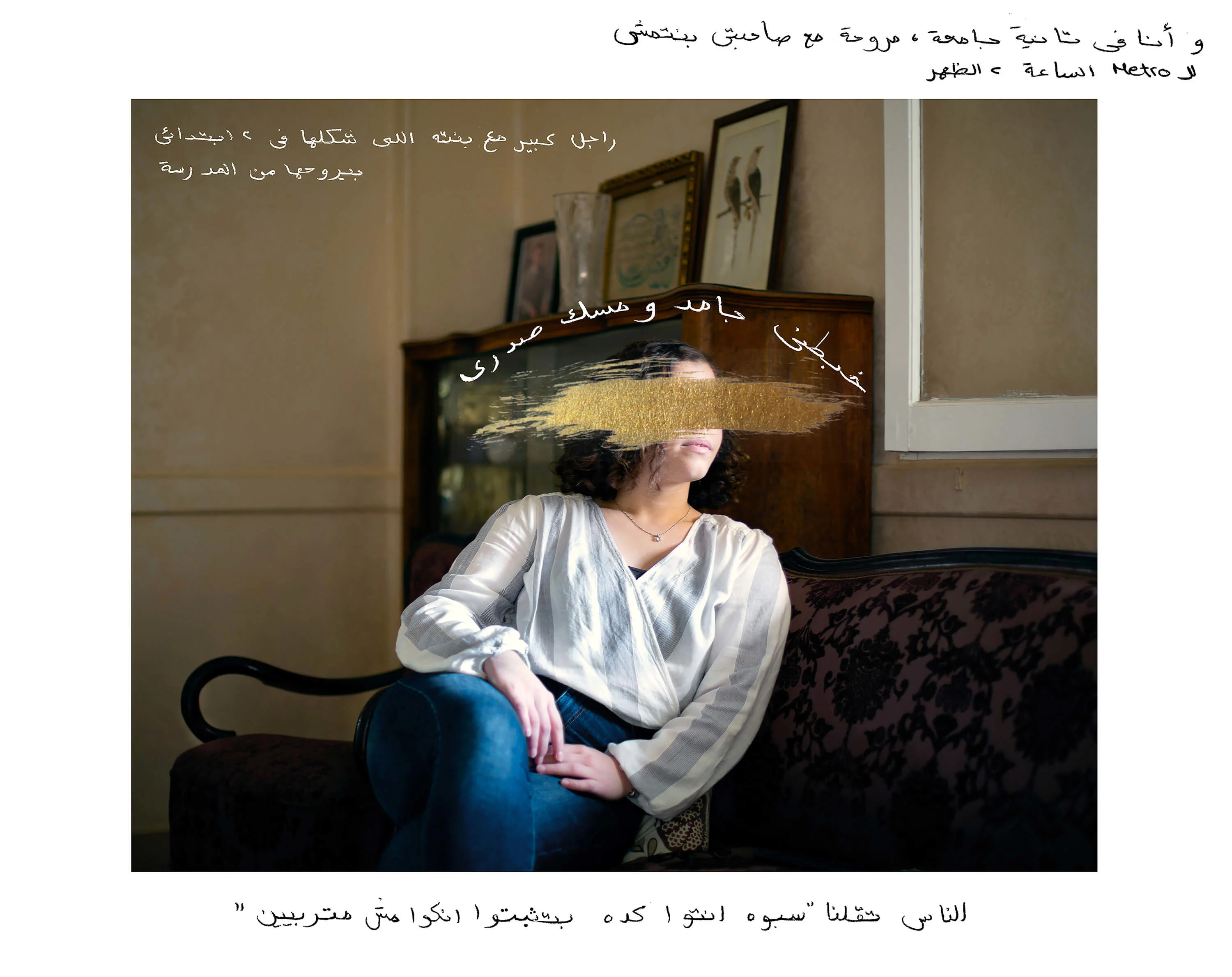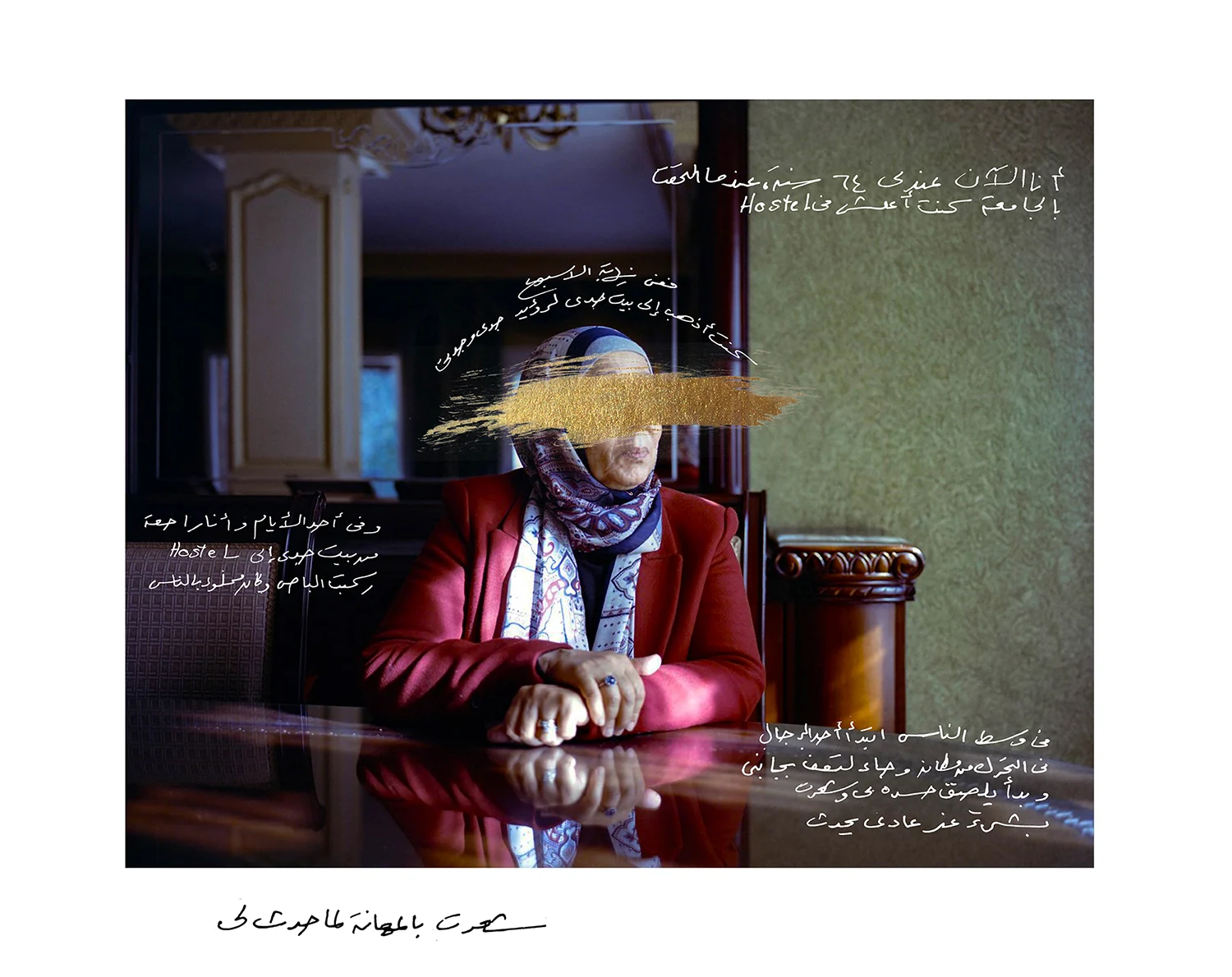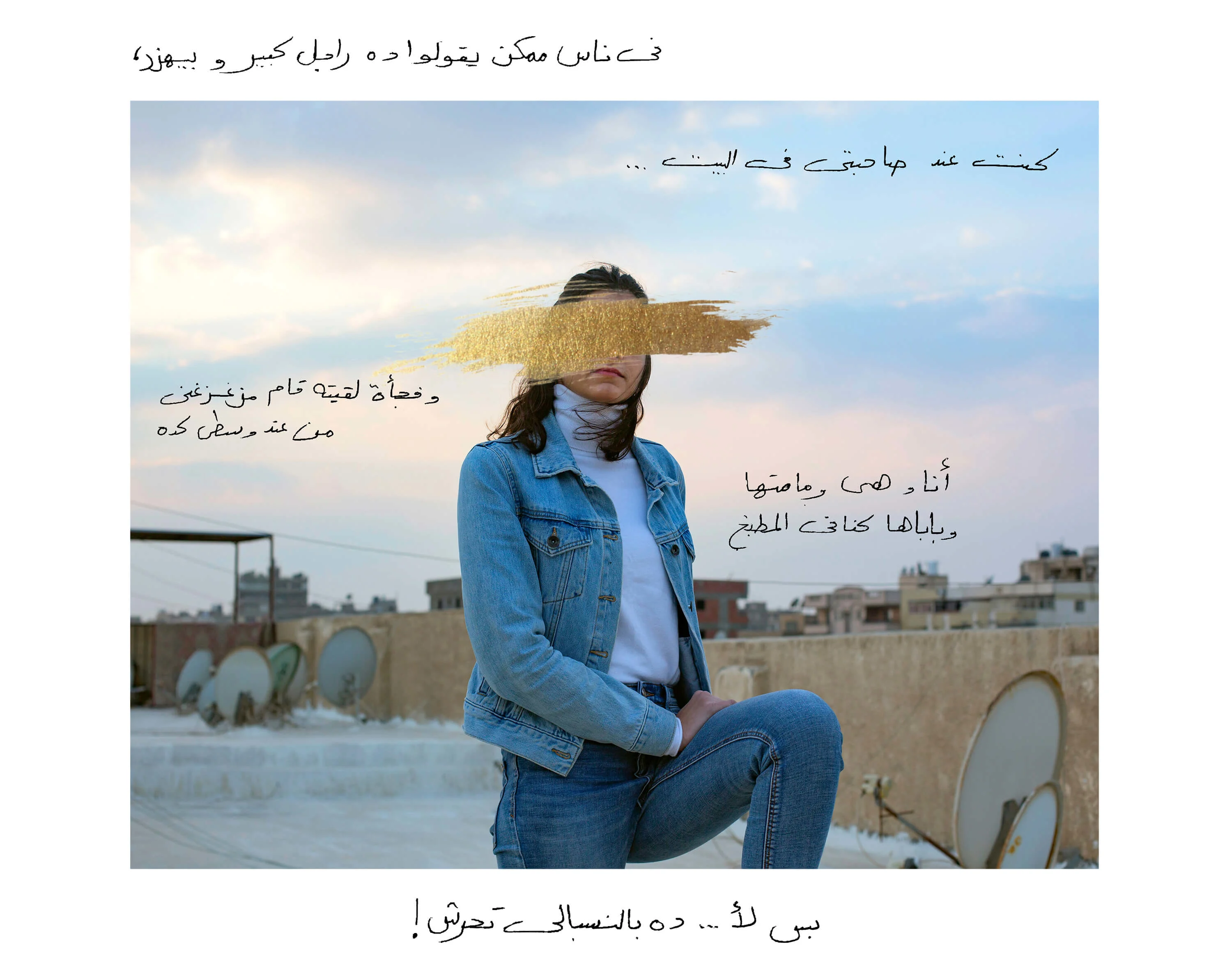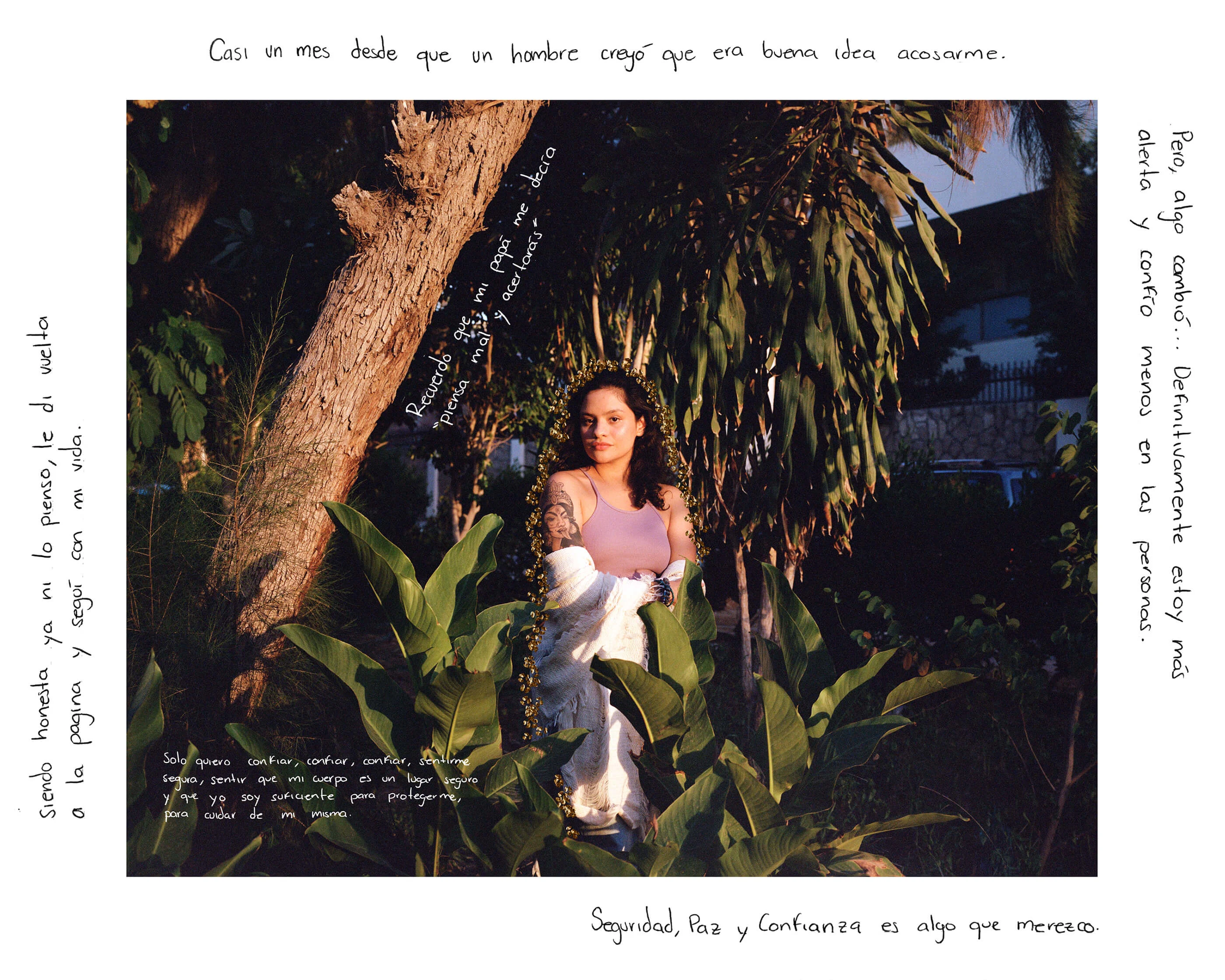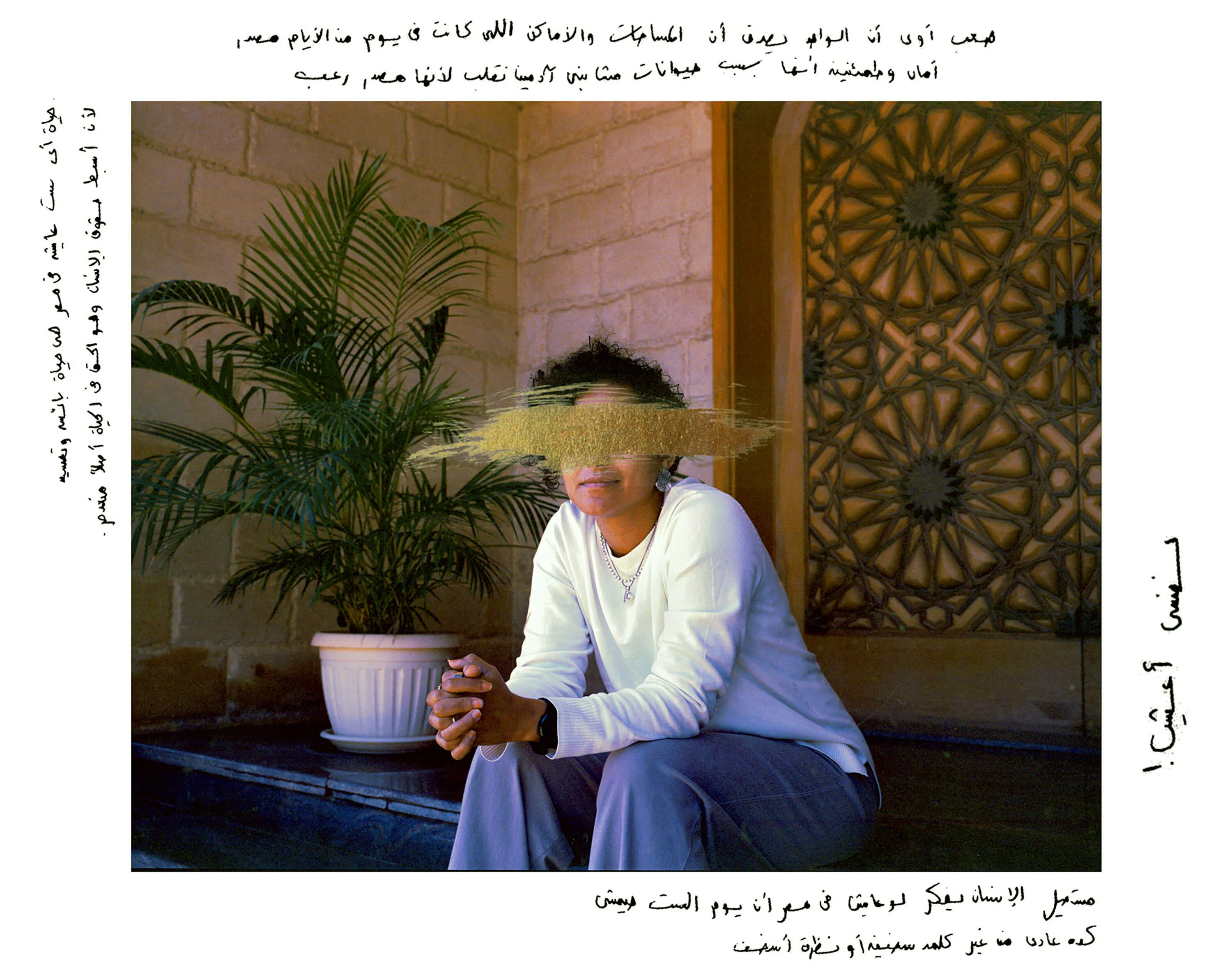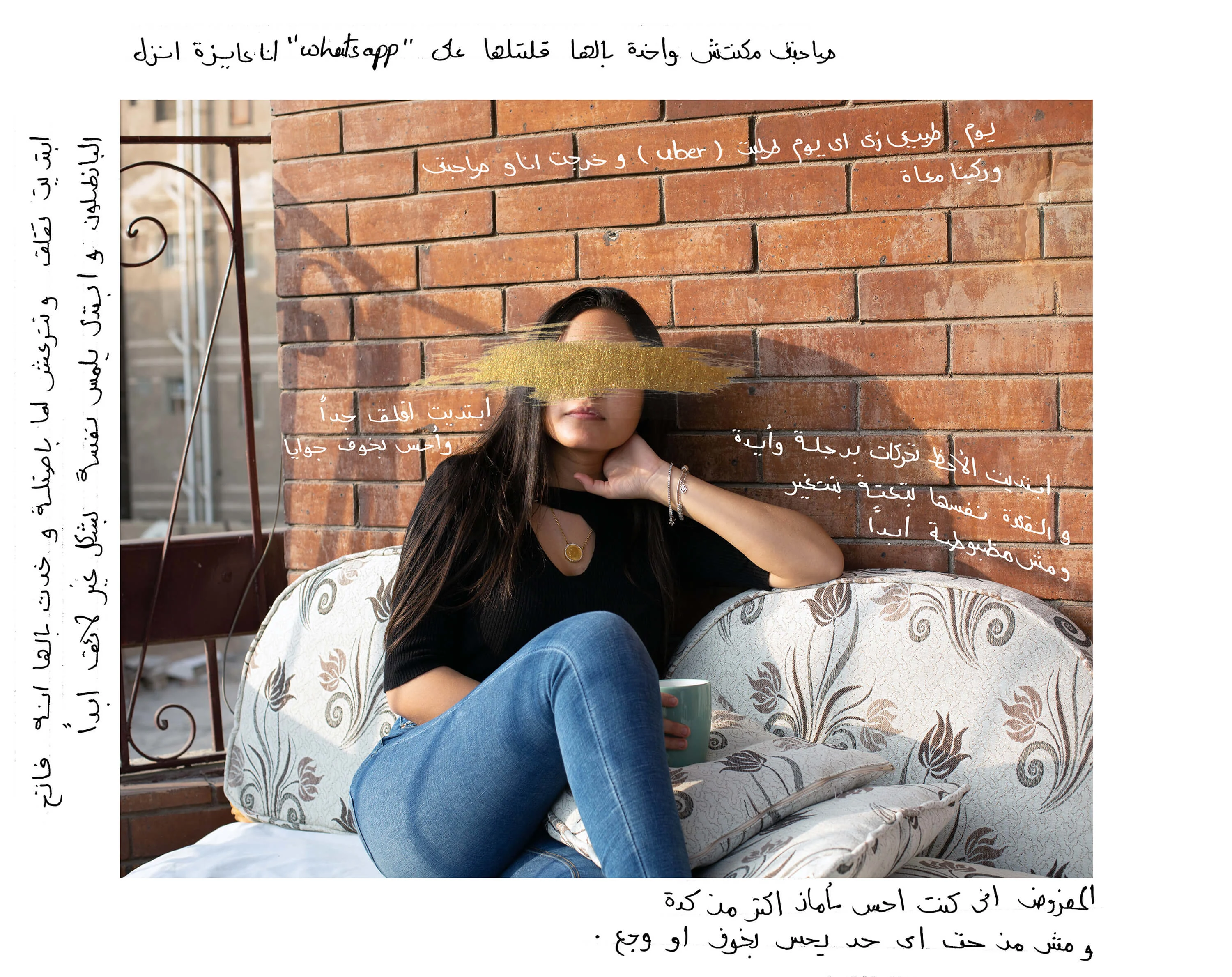

Living in a constant state of compromise is something that Lina Geoushy was forced to do from a young age. Growing up in Egypt, a country with one of the highest rates of gender-based violence globally, made living safely and on her own terms a daily battle. In her project “Shame Less,” Lina calls out the pervasiveness of this crisis and exposes the cultural, social and political factors that normalize it. Through visual and written testimonies from generations of women, she confronts the topic she's been raised to avoid. She tells Gem Fletcher about her motivation to bear witness, reconcile trauma and forge a new future.
This article contains potentially triggering references to physical and sexual violence against women.
“It's a universal problem. People think that these issues pertain only to conservative Middle Eastern countries - and that's not true,” says Egyptian photographer Lina Geoushy. When it comes to gender-based violence, there’s a cultural perception that it’s only happening elsewhere, when in truth, it’s causing devastating fractures all around us, and the COVID-19 pandemic only exacerbated the problem. Combating women’s voicelessness is what motivates Lina, and she uses her practice to explore a spectrum of social issues focusing on gender politics and women's empowerment.
Through research, she attempts to unravel the roots of the institutionalized prejudices, misconceptions and values upheld by religion, culture, law and policy that continue to fail women. Through a community-driven practice, Lina cultivates her projects as shelters – a place for her collaborators to be validated and find agency. Ultimately, her work studies power and how it impacts who has value and who gets to tell their story.
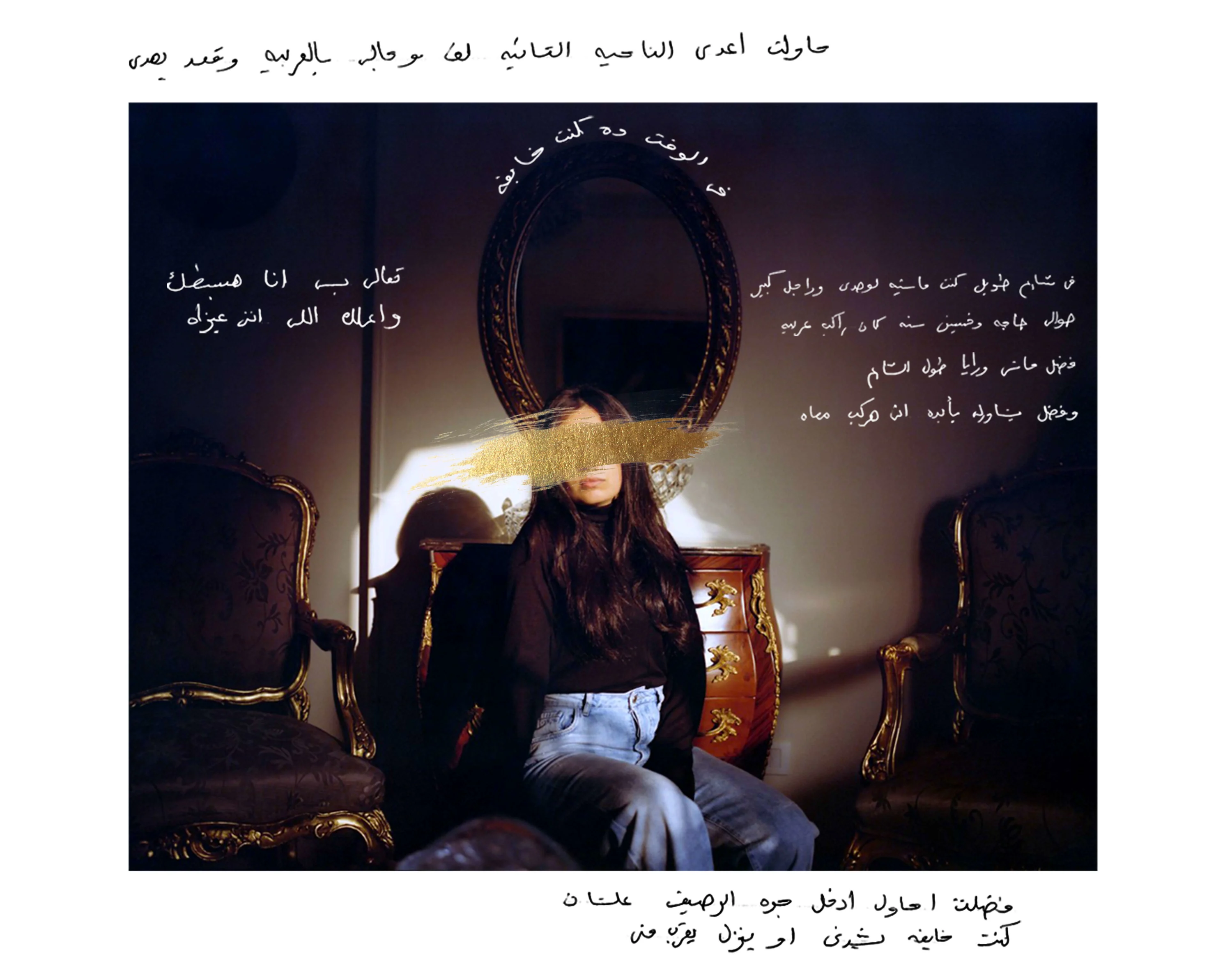
Chasing Pavements
“While I was walking alone in a long street, a man in his 50s started following me with his car for a long period and making hand gestures for me to get into the car with him. I was afraid so I crossed to the other side of the road, so he went around with his car and continued to follow me saying 'come in and I will satisfy you and give you what you want.' In fear of him getting close to me, I tried to walk away from the car and deeper into the pavement.”
Her project “Shame Less” was triggered by a local news story in 2020 about a woman who was drugged and gang-raped in the Fairmont Hotel in Cairo. The accused were eventually let go, and the case sparked a second #MeToo movement in Egypt.
“The Fairmont case dominated the media and public opinion for months,” explains Lina. “For many women, it resurfaced our trauma. People began sharing their stories on social media, illustrating the magnitude of the issue. These violations are happening all around us, in workplaces, in the home, and on the street, and if women report these crimes, they’re victim-blamed, threatened, shamed, and gas-lit until they’re eventually silenced. Having personally been subjected to sexual violence in Cairo, I'm enraged by the normalization of this problem and the perpetual trauma it leaves in our psyches.”
In December 2020, while the case was still very much part of public discourse, Lina put out a call for participants on Instagram, inviting women to tell their stories in protest of the omnipresent violence. After just a few initial encounters, the project shifted gear. In taking the time to get to know her participants, sharing experiences and engaging in lengthy discussions about the issues at stake, a community was born. This collective energy sparked a kinship, and participants began to connect Lina with more and more women who wanted to speak up. “Shame Less” transformed into something active. Rooted in solidarity, it offered women the empowering and cathartic act of being seen and heard for the first time.
“Living in Egypt, you are reminded of the threat of gender-based violence multiple times every single day,” Lina explains. “As a child, my two older brothers were entitled to more freedom than I was. If I was going out, I would get scanned by my mother and brothers and told to cover up. Even when I was playing tennis, my father wouldn’t let me go out in shorts – ‘for the sake of the men.’ As I got older, I realized that simply walking down the street could open you up to verbal harassment and being touched inappropriately. This pervasive violence prevents women from occupying public space, forcing us to curate everything from what we wear to how we travel with one objective – safety.”
“I believe in active citizenship. It's one of the things I love about photography as a tool. As a woman with a good education, I should speak up about these issues. Maybe it won't change the world, but if it empowers one woman, then it's worth it,” Lina says. “I always wanted to share my own story, but I didn't have the guts until now. I'm so glad I did, as I feel much less alone. I'm choosing to fight the silence. There is strength in vulnerability, and owning our stories is brave.”
The notion of radical action also shaped Lina's visual approach. Shifting from classic documentary to something more akin to collage, she enables the images to contain more complex and nuanced narratives. Environmental portraits collide with handwritten testimonies. Text is scattered inside and outside the frame to resemble the non-linear nature of trauma. Nearly all the portraits contain a swipe of gold masking across the face to protect identity, while leaving the mouth visible to symbolize reclaiming their voice. The approach carefully integrates each collaborator into the process, dismantling photography's inherent power dynamics and replacing it with something mutual and multifaceted.
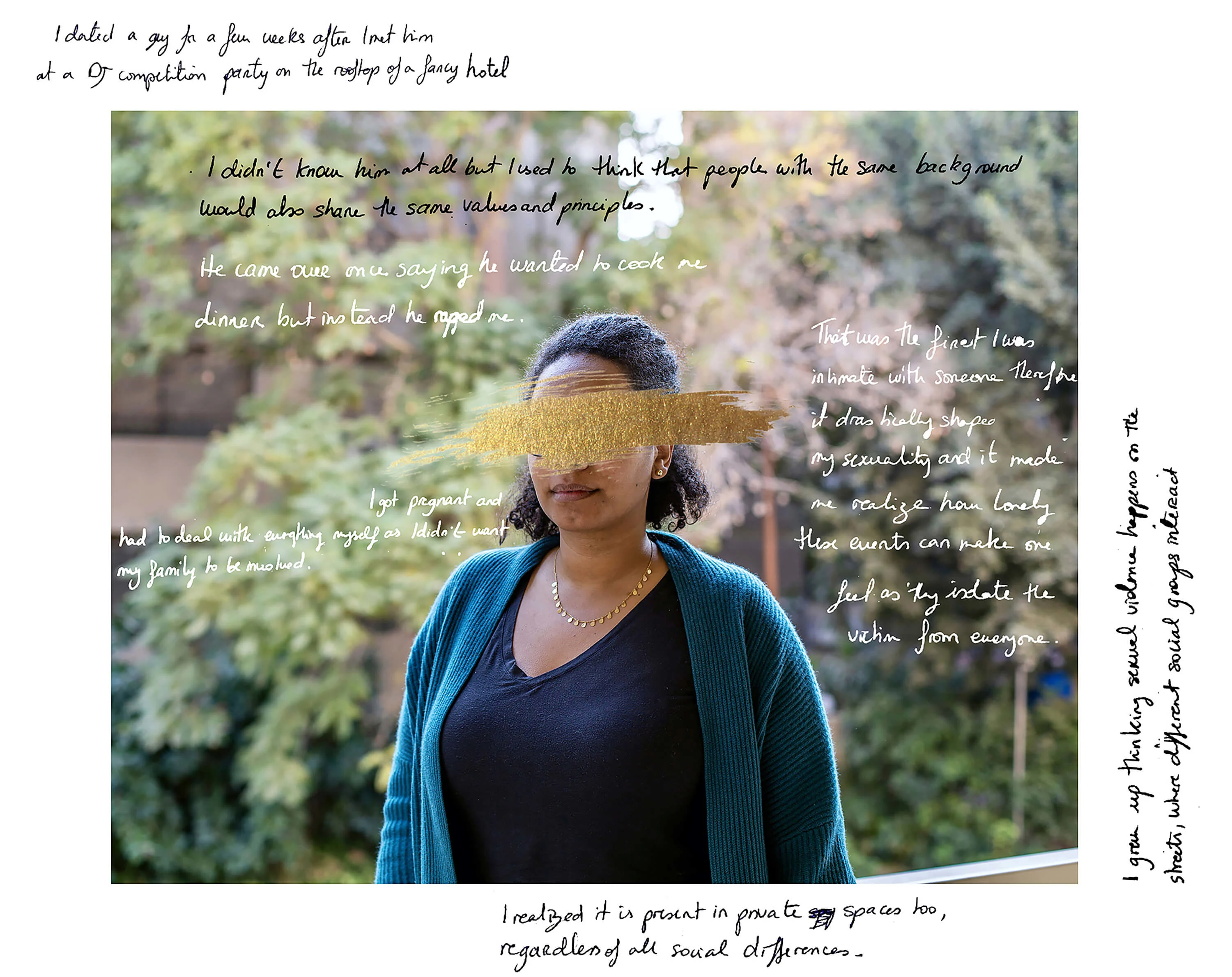
Same Social Circle
“I dated a guy for a few weeks after I met him at a DJ competition party on the rooftop of a fancy hotel. I didn't know him at all but I used to think that people with the same background would also share the same values and principles. He came over once saying he wanted to cook me dinner, but instead he raped me. I got pregnant and had to deal with everything myself as I didn't want my family to be involved. That was the first time I was intimate with someone. Therefore, it drastically shaped my sexuality, and it made me realize how lonely these events can make one feel as they isolate the victim from everyone. I grew up thinking sexual violence happens on the streets where different social groups interact, but I found out that it's present in private spaces too, regardless of social differences.”
“Gendered violence thrives on the silence of its victims,” Rebecca Solnit says. The American writer has spent decades contemplating and unravelling violence against women and how society is shaped and limited by misogyny. “We use our voice to establish ourselves, assert our will, and bear witness,” she explains. “Your voice is your power. It's your membership to society, and the consequences, if you don't have it, are catastrophic.”
In “Shame Less,” Lina captures the impossible contrasts in women's lives – not only the backdrop of institutionalized patriarchal violence but also the courage and resilience it takes to survive despite it. In breaking their individual and collective silence, the work creates a transformative gesture inviting audiences to confront these urgent issues and build a better future. “We are, as a culture, moving on to a future with more people, voices and possibilities,” writes Solnit in her book “Whose Story Is This? Old Conflicts, New Chapters.” “Some people are being left behind, not because the future is intolerant of them, but because they are intolerant of this future.”


